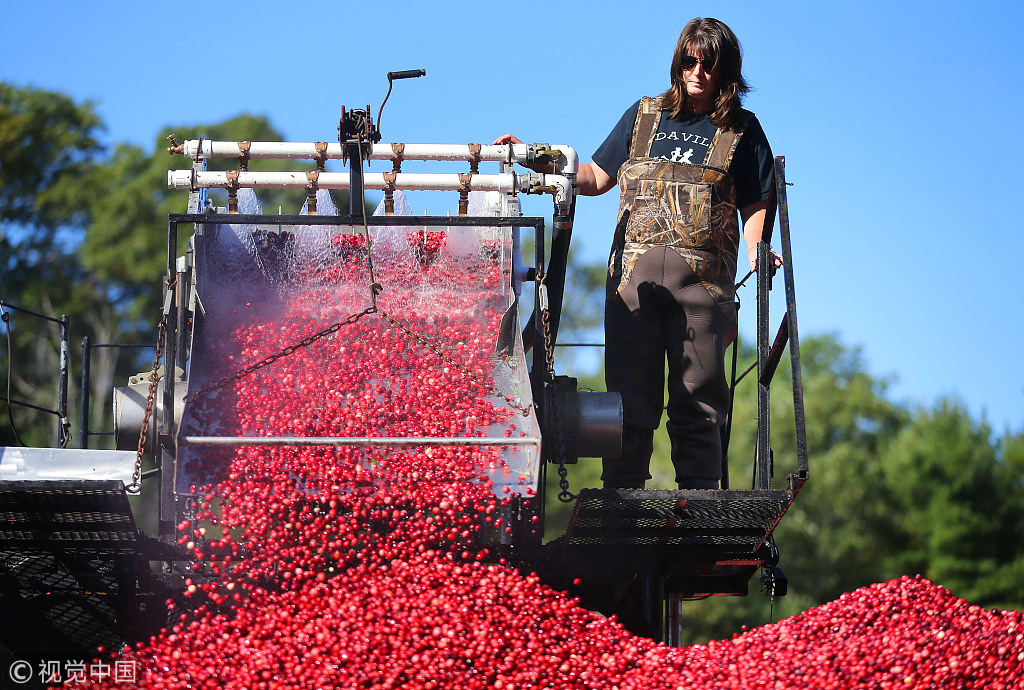US farmers feeling tariff squeeze


Cranberries are often found on the lists of retaliatory tariffs imposed by nations in trade disputes with the United States.
The tariffs are crimping US producers' sales of the fruit that is a staple of the country's traditional Thanksgiving dinners.
China, the European Union and Mexico-the top three markets for US cranberry exports, together representing more than half of those exports-all are slapping tariffs on the tart berry produced primarily in the US and Canada.
The tariffs come as a sluggish US domestic market made exporting a viable option. US cranberry prices have been falling since 2015, according to the US Department of Agriculture.
Overproduction had been such a worry that the USDA announced volume controls in July, asking the industry to withhold 15 percent of the current crop.
Concerns about losing share in the increasingly important international market due to the tariffs have arisen among US growers, said Terry Humfeld, executive director of the Cranberry Institute.
Particularly affected are Wisconsin growers, who have been producing over half of US cranberries for more than a decade at prices below the national average.
Among those affected will be some 250 Wisconsin growers as well as cranberry processors, product manufacturers and others that rely on a strong cranberry industry, said Tom Lochner, executive director of the Wisconsin State Cranberry Growers Association.
"International exports are an important part of the Wisconsin cranberry industry and market. The EU, Mexico and Canada are and have been significant purchasers of US cranberries, and China is a targeted growth market for our industry," he said.
Before the tariffs, exports to those markets were expanding. The European Union, the industry's biggest importer for years, took in 16 percent more cranberries last year.
China, a relatively new but fast-growing market, had increased imports for six consecutive years.
Both markets are now tightening for US cranberries. The EU's 25 percent tariff on US cranberry juice concentrate imports started on June 22, and China's 25 percent tariff on fresh and dried cranberries took effect on July 6.
Wisconsin is the home state of House Speaker Paul Ryan, who has repeatedly criticized the Trump administration's use of tariffs. Wisconsin also is recognized by many as a swing state, one that President Donald Trump won by less than 1 percent in the 2016 election.
For the top importers of US cranberries, there is an alternative. In 2017, EU imports of Canadian cranberries increased 286 percent, according to the USDA. The Comprehensive Economic and Trade Agreement between the EU and Canada, which entered into force provisionally in September 2017, might further encourage the trade.
China recorded a 328 percent increase in dried cranberry imports from Canada, a USDA report showed.




































